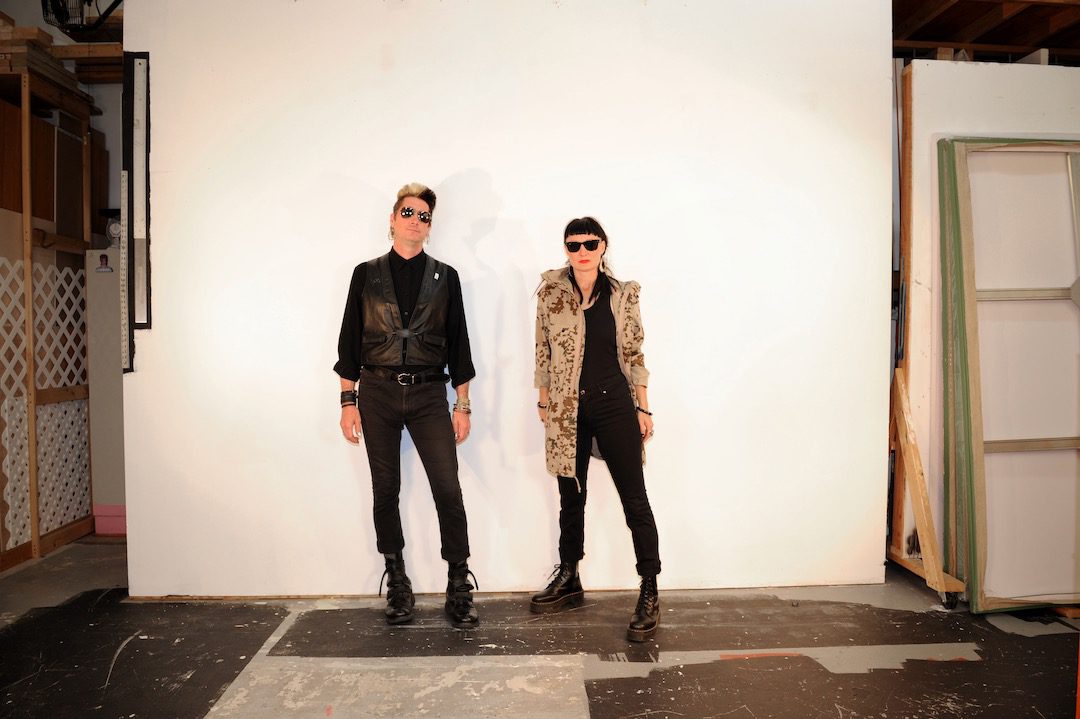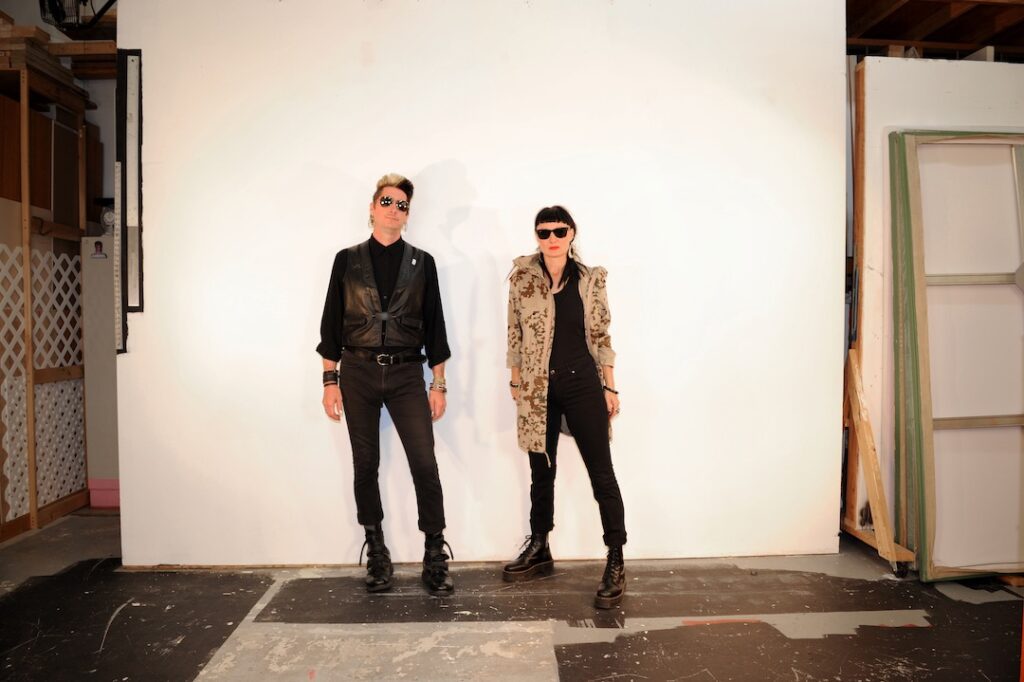

Since the late 1990s, ADULT. has gained a cult following of devotees drawn to the Detroit duo’s genre-blurring, dark electronic music and knack for tapping into complicated, relatable emotions and situations. Nicola Kuperus and Adam Lee Miller hadn’t planned to begin work on a new album so soon after the April 2020 release of Perception is/as/of Deception. Yet, by the fall of the first pandemic year, the pair had commenced writing what would become their ninth full-length album, Becoming Undone; both releases draw from very different types of isolation.
“Once we realized that there was no light at the end of the tunnel, we were like, okay, let’s make a new record,” says Kuperus by phone from Detroit. But unleashing that creativity was harder than anticipated.
When making Perception is/as/of Deception, Kuperus and Miller opted to work in a room they had painted black. It was an experiment in sensory deprivation that left sound as their primary form of stimulus. When the album was released, in the early weeks of the COVID-19 pandemic, record stores were largely closed and tour plans were canceled. “It was made in a void and it just went into a fucking void,” says Kuperus with a laugh.
Where Perception is/as/of Deception was the result of isolation-by-design, Becoming Undone manifested out of an unexpected, but necessary, period of quarantine. “We had to be so careful because we had cared for my dad through hospice at home,” she explains; her father passed July of 2020. Additionally, her mom underwent cancer treatment and they were visiting her frequently. “We were literally not seeing anybody. We felt like we had to protect her,” says Kuperus. “It was a very isolated time.”
“You would think that would maybe help the creativity, but it didn’t help,” she adds. “The whole timeline of COVID seems so crazy to me. It feels like one big blob. Even though it’s two years, it feels like the same thing.”
However nebulous, Kuperus surmises that this period of isolation had a big impact on the writing process for Becoming Undone. “There’s no pressure for the songs to be anything other than they want to be,” she says. “It’s not like this has to be a dance song or a crowd-pleaser, because we were just working in such a strange moment.”
“Teeth Out Pt. II,” the final track on Becoming Undone, was actually the first written for the album. “I got this looper pedal and was experimenting with doing various vocal recordings of just noises I was making. Through my voice and the pedal, I made a structure, almost like a melody or a beat, but it’s far from there,” says Kuperus. “I had been writing down various things after my dad passed and that really came out of that.”
The song, written in November of 2020, would go on to set the tone for the rest of the new material. “In a way, we are making this record for ourselves,” she says. “Not that we ever make records for anybody else, but, let’s face it, there is a pressure and I think that this set the tone for what’s next. Where do we go from this point?”
The pressure, Kuperus later clarifies, isn’t about listener expectations. “I think I’m at a weird point in my life where I’ve been doing this much longer than I expected and we’ve had successes, but we’ve never been a big band,” she says. “It’s more your own legacy. You just want to be credible; you want people to respect and understand your work and, to have that, you hope to inspire other people by making important work.”
“I don’t feel pressure, like, will people like this?” she adds. “I just want it to be important in the realm of weirdo music that we do, that it has some kind of significance and that it’s long-lasting. So, there’s that pressure of making a good piece of work.”
All this led to some really intriguing moments on Becoming Undone. Kuperus brought out the same looper pedal used on “Teeth Out Pt. II” for “She’s Nice Looking.” Vocals build to the repetition of variations of the song’s title, and as it swells, it might make you feel like you’re trapped in an endless Instagram scroll of people commenting on a woman’s looks. The song itself reflects shallow popularity based on appearance. “You find these people saying, she’s nice looking,” says Kuperus. “You get really tired of that.”
With Becoming Undone now out via Dais Records, ADULT. is planning to hit the road, first for a European tour through March and into early April. Their U.S. jaunt is set for April and May. The tour comes with a mix of emotions for Kurperus. ADULT. has only played a few shows since live music resumed in 2021.
“You’ve gotta be safe and respectable, but, also, the show must go on and life must go on,” says Kuperus. “Whether it’s the artists or the people going out to the shows, we all need music desperately.”
Follow ADULT. on Facebook and Instagram for ongoing updates.



